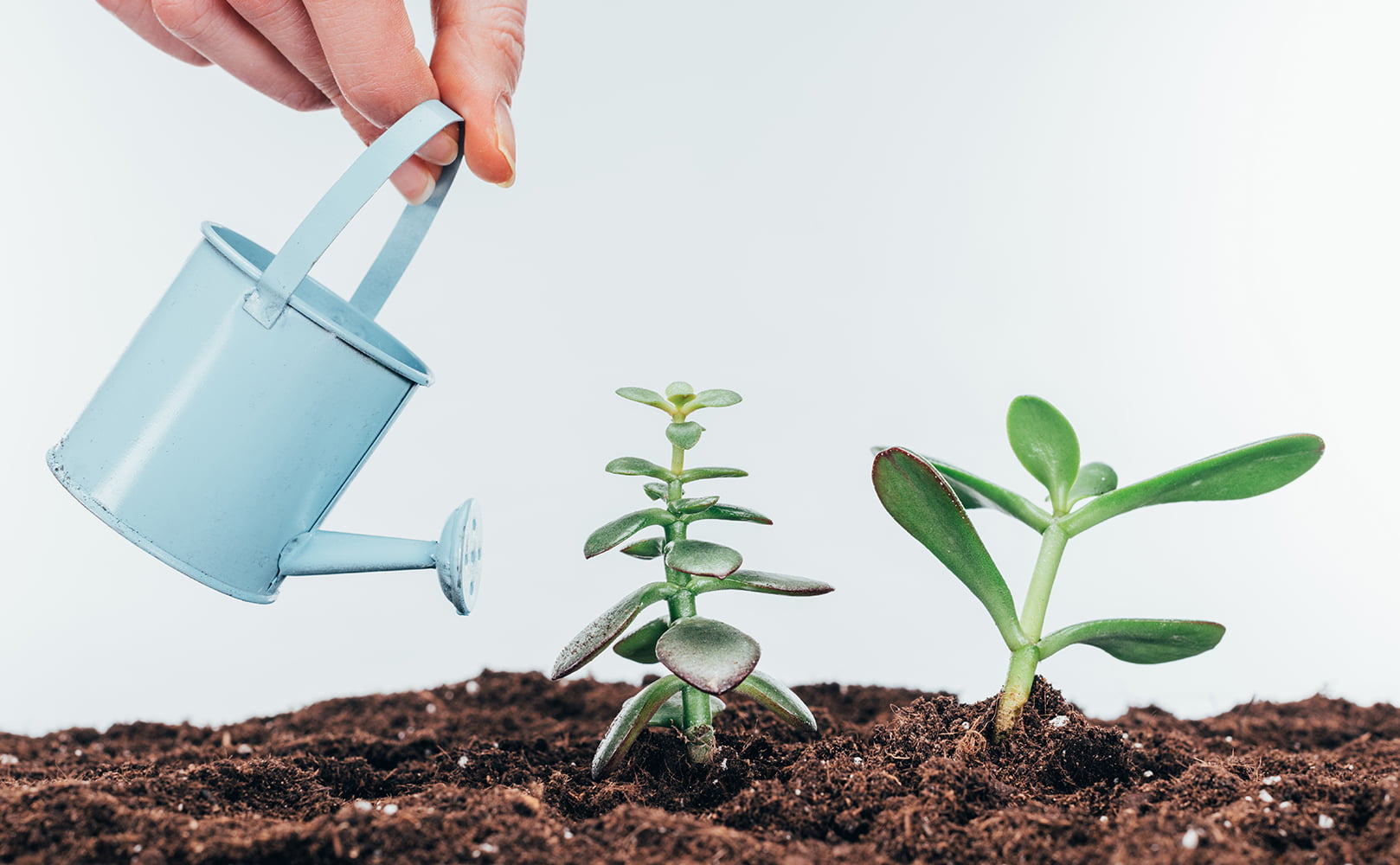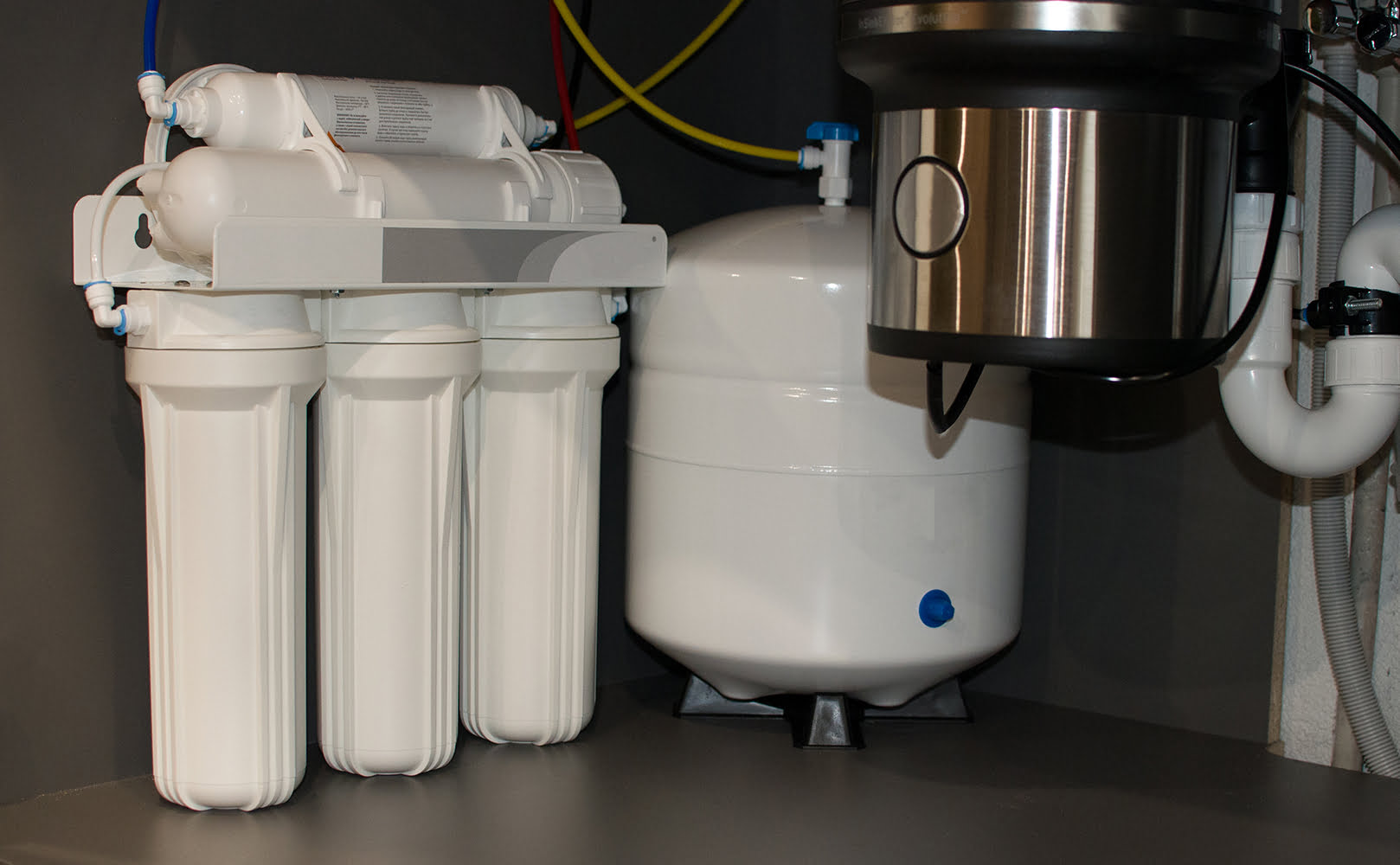Does RO Water Kill Plants? Find Out Here!
Written by: Gene Fitzgerald // Last Updated: Feb 22, 2023
This page may contain affiliate links. If you buy a product or service through such a link we earn a commission at no extra cost to you. Learn more.
A hot topic of debate in the gardening world is whether or not RO water is suitable for your plants or if it should be avoided.
The short answer to the question ‘does RO water kill plants?’ is yes, it can if you don’t use it properly.
Used correctly, however, RO water can be very beneficial for your plants.
If you are a little confused about how it can be harmful and what to do to make it healthy, then don’t worry; we are going to break it all down for you here.
Contents
- Is RO water killing my plants?
- What’s reverse osmosis and RO water?
- What contaminants does an RO system remove?
- Pros & cons of RO water for plants
- What can I add to RO water so it doesn’t kill my plants?
Key Takeaways
- Reverse osmosis removes most minerals from water, both good and bad. As plants need certain minerals to grow, giving them pure RO water and not remineralizing it is what may cause plants to die.
- If you use RO water as a base, with the appropriate plant feed and fertilizers, it can actually help your plants to flourish.
Is RO Water Killing My Plants?
So, is RO water killing your plants? Well, yes, RO water could be killing your plants.
Reverse osmosis water purification removes essential minerals that plants need to flourish, such as calcium, magnesium, nitrogen, potassium, and phosphorous. If you feed your plants with only reverse osmosis water and don’t remineralize it somehow, then over time, your plants may experience stunted growth and eventually die.
Still, reverse osmosis also removes those contaminants from water that could cause damage to your plants.
In other words, there is a positive and a negative aspect to it.
What’s Reverse Osmosis and RO Water?
Reverse osmosis is a process in which water is pushed through a membrane that has microscopic pores. These pores allow the very small H2O molecules through to the other side but block most larger contaminants, which are then flushed away with wastewater.
If you run your water through a reverse osmosis filtration system, which contains various other pre-filters to catch things the RO membrane does not, then you end up with almost 100% pure water suited for consumption.
What Contaminants Does an RO System Remove?
Using a quality RO system removes the following:
- Microbes like bacteria and cysts
- Heavy metals including lead, chromium 6, and cadmium
- VOCs
- Water disinfectants (chlorine and chloramine)
- Disinfection byproducts
- Pesticides
- Herbicides
- Minerals and salts (sodium, calcium, magnesium, potassium, etc.)
- Sediment
- Nitrates/Nitrite
- Overall Total Dissolved Solids (TDS)
- Transition metals
Pros & Cons of RO Water for Plants
Removes Contaminants
RO water removes most contaminants to ensure you are not exposed to them when you grow vegetables, for example.
Lead and arsenic can be taken up by the plants and accumulate in them, which can be a health hazard if you are growing your own food. It also removes chlorine, herbicides, and insecticides, which can be harmful to your plants, particularly the more sensitive varietals such as orchids.
Full Control of Water Quality
As RO filtration removes almost everything from your water supply, you have a pretty clean base to work with. You can then add minerals and other beneficial nutrients back into the pure water for complete control of what your plants are being exposed to.
Removes Beneficial Minerals
Essential minerals are also removed during the RO process, which can lead to issues in your plants if you don’t remineralize them in some way. In some cases, this can also make the water slightly acidic, which can change the pH balance of the soil and affect the way the plant uptakes nutrients. Usually, the soil will be able to buffer this, though.
Maintenance
RO systems require regular filter replacements and maintenance, which adds to the cost, making it a bit more of a financial and time investment.
Cost
Installing a reverse osmosis system has significant upfront costs and also increases the cost of your water bill due to the amount of wastewater it creates.
What Can I Add to RO Water So It Doesn’t Kill My Plants?
Plants need quite a few essential minerals in order to survive. They include potassium, phosphorus, nitrogen, magnesium, and calcium. So, you need to re-add these nutrients with some kind of fertilizer, either liquid or granules.
- MSU fertilizer is one option. It has a nutrient balance that is amazing for orchids and is also well-suited to other kinds of house plants.
- Ferns and tropicals can be sensitive to certain fertilizers, so these should be remineralized with a gentle and slow-release nitrogen, phosphorus, and potassium fertilizer (NPK).
- Orchids and Ficus need more NPK, so a higher NPK fertilizer percentage is better.
- Flowering plants need more phosphorus and potassium, and non-flowering will need more nitrogen.
If you have any questions about RO water killing plants please don’t hesitate to leave a comment below!
Information provided on BOS is for educational purposes only. The products and services we review may not be right for your individual circumstances.
We adhere to strict editorial guidelines. Rest assured, the opinions expressed have not been provided, reviewed, or otherwise endorsed by our partners – they are unbiased, independent, and the author’s alone. Our licensed experts fact-check all content for accuracy. It is accurate as of the date posted and to the best of our knowledge.



